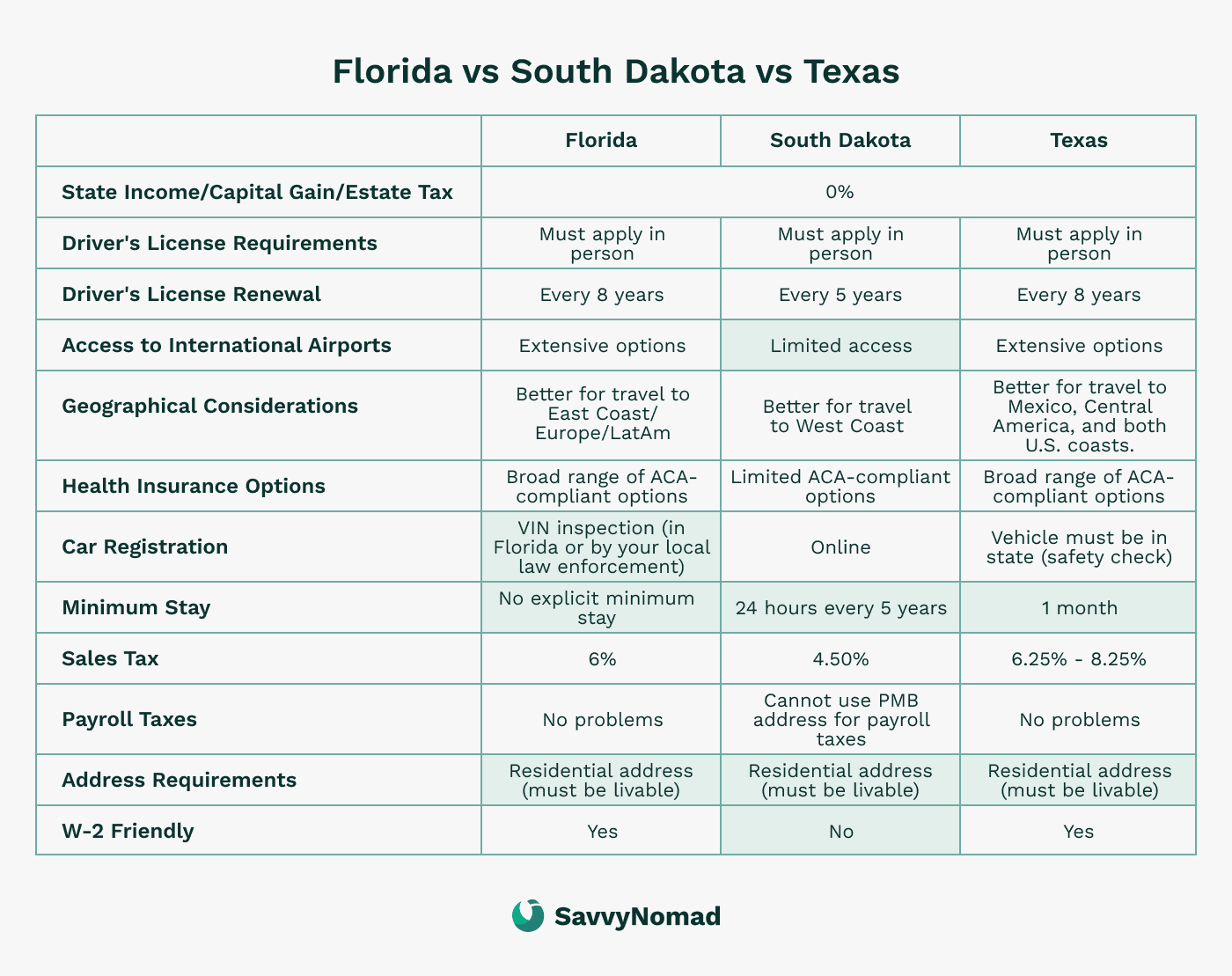Do expats from Vermont still need to pay state taxes?

Understanding Vermont's tax laws is essential for residents who live abroad. This article explores whether expatriates from Vermont are still required to pay state taxes, highlighting the implications of residency status on their tax obligations.
It's important for Vermont expats to stay informed to avoid unexpected tax liabilities and ensure compliance with state regulations.
This guide simplifies the complexities of Vermont's tax rules, helping expatriates manage their responsibilities effectively while living overseas.
TLDR:
Vermont tax law requires that you file a state tax return if you are domiciled in the state, regardless of whether you are a resident.
This means that even if you no longer live in Vermont but maintain your domicile there, you must still file and pay taxes on your worldwide income.
The penalty for failure to pay individual income tax is 1% per month, and the penalty for failure to file a return is 5% per month.
The maximum civil penalty for non-compliance is 25% of the unpaid tax due.
Understanding Vermont's tax residency rules
Navigating tax obligations starts with understanding Vermont's criteria for residency.
The state defines three main categories:
Resident
You are considered a resident if Vermont is your domicile—your permanent home to which you intend to return after periods of absence—or if you maintain a significant presence in the state.
Residents are required to pay taxes on their worldwide income, regardless of where it is earned.
Nonresident
If you do not maintain a domicile or significant presence in Vermont, you are classified as a nonresident. Nonresidents are only taxed on income that originates from Vermont sources.
Part-year resident
Those who move to or from Vermont during the tax year fall into this category. Part-year residents are taxed on all income earned while they are considered residents of Vermont and only on Vermont-sourced income during the periods they are not.
For those who moved abroad
Living abroad significantly changes your tax status, primarily centered around the concept of "domicile."
If Vermont was your last U.S. domicile and you haven't established a new one in another state or country, Vermont may still consider you a resident for tax purposes.
It's important for expatriates to review their domicile status, especially if they have not clearly established a new permanent home abroad.
What constitutes Vermont-sourced income?
Vermont-sourced income is essential in determining tax obligations for nonresidents and part-year residents. This includes, but is not limited to:
- Employment Income: Wages or salaries earned while working in Vermont.
- Business Income: Earnings from operations conducted within Vermont, whether through ownership of a business or part of a partnership.
- Property Income: Rental income or proceeds from selling real estate located in Vermont.
Why should Vermont expats move domicile to a state with zero state income tax?
State income tax savings
For retirees and high-income individuals from Vermont, moving to states without income taxes such as Florida, Texas, or Nevada can offer significant financial advantages. Without the burden of state income taxes, you can keep more of your earnings, allowing for greater investment opportunities or an enhanced lifestyle.
Inheritance tax benefits
States like Florida and Texas lack a state income tax and do not impose state estate taxes. This can considerably reduce the tax burden on your estate, ensuring that more wealth is passed on to your heirs. This is especially advantageous for individuals with substantial assets who wish to maximize the inheritance for their beneficiaries.
Flexibility and mobility
Moving to a state with no income tax gives you more freedom to travel and live in different places without being burdened by high state tax payments. This is especially beneficial for high-income earners with business operations in multiple states or countries, as well as for retirees who want to explore new locations in their later years.
Moreover, the absence of state income taxes simplifies your tax filing process. You will only need to file federal taxes, reducing the complexity and potential for errors in your tax returns and making financial management more straightforward.

How to leave Vermont tax residency?
When you decide to move abroad or to another state, changing your Vermont residency status requires a series of deliberate steps to ensure a clear transition.
Here’s a step-by-step guide to help you navigate this process:
1) Establish new residency
Secure a residential address in your new location. This is the first step in establishing your new domicile.
Consider filing a Declaration of Domicile in the new state, solidifying your intent to make it your permanent home.
Reference guides like Savvy Nomad’s domicile guides may provide additional help for specific states:

2) Transfer IDs and registrations
Update your driver's license and vehicle registration as soon as possible to reflect your new residence. This helps in establishing your presence in the new state.
3) Register to vote
Register to vote in your new location. Voter registration is a significant factor in demonstrating your commitment to your new domicile.
4) Update documents
Ensure all personal documents, such as identification cards, medical records, insurance policies, and financial documents, are updated with your new address. This consistency is crucial for proving your new residency status.
5) Notify your employer
Inform your employer about your residency change. This is particularly important if your move affects how your income is taxed, potentially shifting some of it away from being classified as "Vermont-sourced."
6) Notify IRS
Inform the IRS of your address change using Form 8822. Extend this notification to all personal and professional entities.
7) Keep records
Maintain detailed records of all your relocation actions, including receipts, bills, and legal documents. These records can be invaluable, especially if your residency status is questioned.
8) Anticipate an audit
Be audit-ready with comprehensive proof of your move’s permanence.

Tax benefits and exemptions for Vermont expats
Living abroad as an expat comes with various federal tax benefits and exemptions that can help reduce your overall tax burden. Here are some of the key federal tax advantages available:
Foreign Earned Income Exclusion (FEIE)
The FEIE allows U.S. taxpayers living abroad to exclude a certain amount of their foreign-earned income from U.S. federal income tax.
For the tax year 2024, this exclusion amount is up to $126,500.
To qualify, you must pass either:
- Bona Fide Residency Test: You qualify if you are a resident of a foreign country for an uninterrupted period that includes an entire tax year.
- Physical Presence Test: You qualify if you are physically present in a foreign country for at least 330 full days during a 12-month period.
Foreign Tax Credit (FTC)
The FTC helps you avoid double taxation by allowing you to take credit for foreign taxes paid on income that is also subject to U.S. federal tax.
This credit can significantly reduce your U.S. tax liability, especially if you reside in a country with high tax rates.
Foreign Housing Exclusion (FHE)
The FHE allows you to exclude certain housing expenses from your federal taxable income, including rent, utilities (excluding telephone), and other reasonable expenses related to housing abroad. The amount you can exclude is limited to a base amount plus housing expenses exceeding 16% of the FEIE limit.

Filing Vermont state taxes from abroad
1. Determine residency and identify Vermont-sourced income
Determining your residency status is paramount when filing Vermont state taxes from abroad.
Consider the following steps:
- Evaluate your ties to Vermont: Assess your connections to Vermont, including factors such as property ownership, business interests, and familial relationships within the state. Owning property, conducting business activities, or having close family ties in Vermont may indicate residency status.
- Review income sources: Identify income sourced from Vermont to ensure accurate tax reporting. Vermont-sourced income may include rental income from properties located within the state, income earned from businesses operating in Vermont, or wages from Vermont-based employers. Thoroughly reviewing income sources helps in determining the extent of your tax obligations to Vermont.
2. Required forms
- Form IN-111, Vermont Income Tax Return: Main form for reporting income, deductions, and credits for Vermont state taxes.
- Schedule IN-112, Vermont Tax Adjustments and Credits: Used to report adjustments to income and claim various tax credits.
- Schedule HI-144, Household Income: Required for claiming the Vermont Household Income Credit.
- Form HS-122, Homestead Declaration, and Property Tax Adjustment Claim: Essential for claiming the homestead property tax adjustment if you own property in Vermont.
Deadlines and extensions
- Standard deadline: April 15.
- Automatic extension: Two-month extension for expats, new deadline June 15.
- Payment due: Taxes owed by April 15, despite filing extension.
Consequences of non-compliance with Vermont tax laws
Interest and penalties
Failure to pay taxes on time will result in interest and penalties accruing each month the debt remains unpaid. The penalty for failure to pay individual income tax is 1% per month, and the penalty for failure to file a return is 5% per month.
Late filing fees
If a tax return is filed more than 60 days after the due date without an extension, a $50 late filing penalty will be assessed, even if no tax is owed.
Maximum civil penalty
The maximum civil penalty for non-compliance is 25% of the unpaid tax due.






